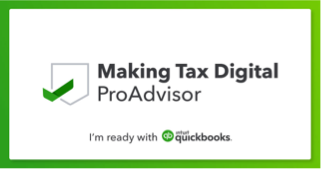Testimonials
[testimonial author]

Rated 5.0 on Quickbooks ProAdvistor

800+ Likes on Facebook

If you’re a Sole Trader or a Partnership then you may be affected by Basis Period Reform (BPR) if your accounting year end date is not between 31st March and 5th April. Under the reform, if your accounting year end falls outside these dates then you will need to make changes to the way you calculate your profits for this current financial period (2023 – 2024) and going forwards.
If your accounting period end dates do fall between 31st March and 5th April then you could still be impacted by BPR if you have unused overlap relief.
What’s overlap relief?
An accounting overlap is when you have accounting periods which are not the same. This may occur when you first start your business or if you decide to change your accounting period dates. Overlap relief is given as there is a chance that you may be taxed twice on profits during the transition.
How will I be impacted by BPR?
Regardless of your current accounting year end date you will now have to submit your business taxes for HMRC’s stipulated financial period of 6th April – 5th April. From April 2024 this means your profits will be assessed in the same tax year in which they arise.
There will be a transition period for sole traders and partnerships who don’t currently have an accounting date 6th April- 5th April. This means that you may have to submit profits for an accounting period which is longer than 12 months resulting in paying more tax than you expected. In order to compensate for this HMRC will assess the additional tax and spread the cost over 5 years for you.
How will that work?
If your current accounting period ends between 31st march and 4th April then HMRC will treat your accounting end date as 5th April, this is what they call late accounting date rules. This means you won’t have to worry about the rules under BPR, you can continue with your current accounting period. For example if your accounting end date is 1st April for 2024/2025 tax year then you should report on profits earned for 2nd April 2024- 1st April 2025. Any business during the additional days between 3rd and 5th will be included in your tax submission for the following year.
If your business has an accounting year end date that doesn’t fall between 31st March and 5th April then you will have to comply with the transition rules for BPR. This means that you will be required to;
Prepare 2 sets of accounts for accounting year 2023/2024
Pay tax and national insurance based on the profit of that tax year
Depending upon what month your accounting period ends it could mean that you have less time to prepare and submit your tax return. In certain circumstances you may not be able to finalise your year end and may have to provide estimates instead.
Alternatively you can choose to change your accounting period accordingly.
Changing your accounting period
You will need to notify HMRC of any changes made to your accounting period. You can choose any accounting period but to avoid BPR then of course it will need to fall within 31st March- 5th April. Your chosen accounting period cannot be over 18 months long. If you have previously changed your accounting period within the last 5 tax years, you will not be allowed to change your accounting period.
If all of this is too much for you to get your head around then please get in touch. We’d love to help you get your finances in order with as minimum stress as possible.
[testimonial author]

Rated 5.0 on Quickbooks ProAdvistor

800+ Likes on Facebook
Get in touch and find out how we can help you
Tel. 01691 674792
Email. info@kcaccountancyservices.co.uk


